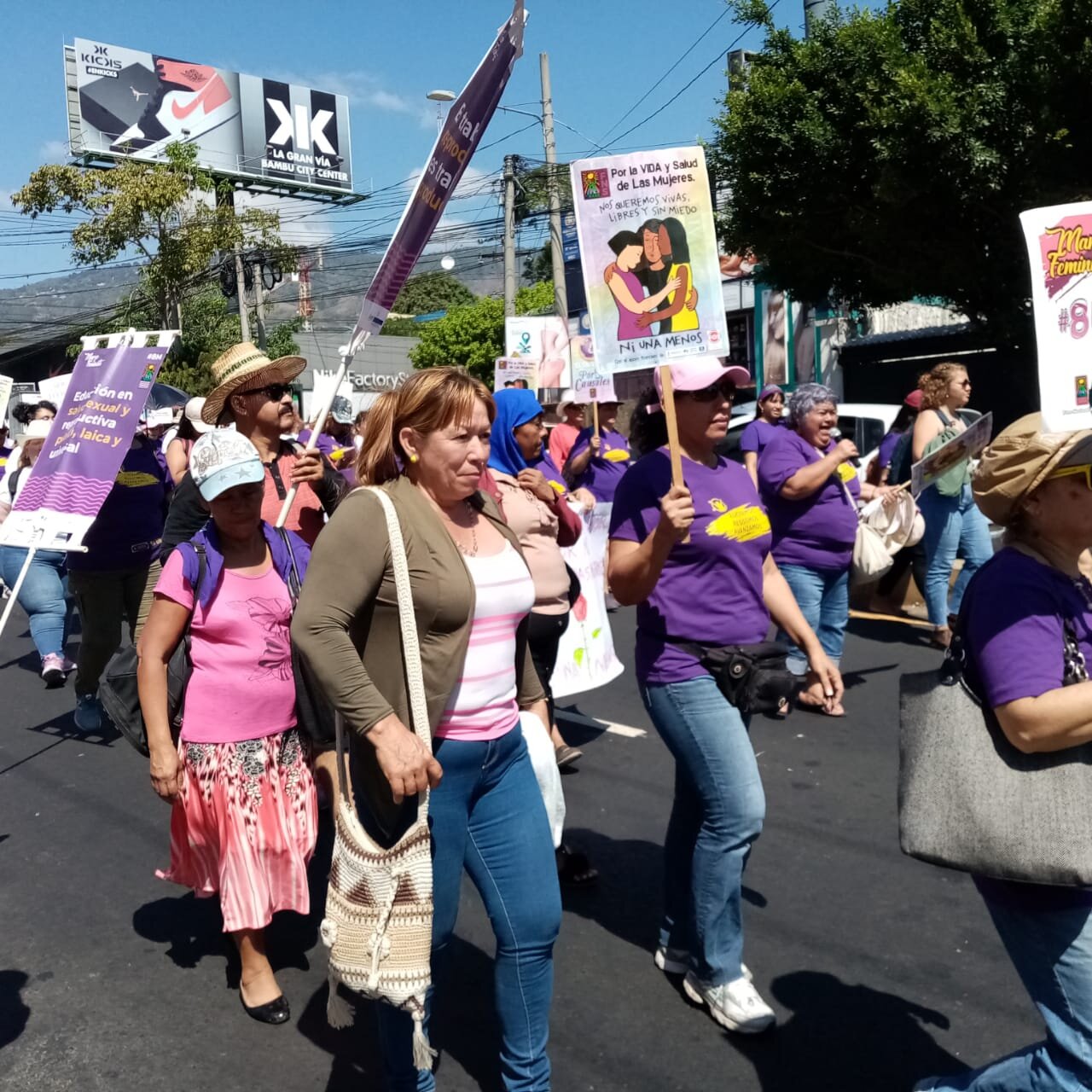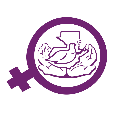APSIES - CCDA - CODEMUH - NOMADESC - Nuevo Horizonte - REDCAM - Sector de Mujeres - SINTRACUAVALLE - SNTAP
Campesino Committee of the Highlands (CCDA)
Est. 1982
CoDev Partner since 2022
The Campesino Committee of the Highlands (CCDA) is an indigenous and peasant organization founded in 1982 in the highlands of Guatemala. CCDA was created to promote the integral human development of the rural population and foster gender equality through social, cultural, economic, and political actions that respect the different cultures of the country. The CCDA advocates for a country with integral and ecologically sustainable rural development. It currently has a presence in twenty departments of Guatemala and represents more than one hundred thousand families.
Canadian partners: Pacific Transit Cooperative (2022)
The Honduran Women’s Collective, CODEMUH, is a feminist, popular, autonomous, grassroots organization. CODEMUH has been promoting a comprehensive, systematic process in the area of gender-based and workplace violence, with emphasis on occupational health with a feminist political perspective. One of the main purposes is unlearning patriarchal practices in order to learn and generate individual and collective autonomy.
Among CODEMUH’S objectives are: to Improve the living conditions and integral health of women, through organizational, training and advocacy processes; contribute to a life without violence by promoting initiatives to respect and expand the rights of women; to achieve processes of coordination and alliances with the organized social movement and with other social networks; and to unite efforts for political advocacy in favor of the rights of women.
Canadian partners: BCGEU (since 1999), CUPE BC (since 2015), CUPE Global Justice Fund (since 2004), HEU (since 1997), HSA (since 2002).
The Salvadoran Association for Inter-community Health and Social Services (APSIES), is a grassroots organization working for comprehensive quality healthcare, respect for community needs and environmental protection. Working mainly in eastern El Salvador, APSIES focuses on health, gender equality and environmental risk management, as well as an approach to production development which allows families to improve their income by establishing alliances with different organized sectors and institutions present in the region. One of those alliances is the National Health Forum (FNS), which monitors public health policies guaranteeing universal access to health services. The FNS is present in 13 of the 14 provinces across the country, including Usulutan and San Miguel where APSIES is responsible for developing its work.
CoDev’s programming with APSIES is focused on empowering the population around their right to health through the consolidating the National Health Forum in the departments of Usulután and San Miguel, as well as empowering women to exercise their right to citizen participation in decision making.
Canadian partners: BCGEU (since 2006), Campbell Webster Foundation (since 2016), FPSE (since 2002), HEU (since 2007), HSA (since 1991), OPSEU (since 2017).
The Network is a Central American-wide coalition of seven women’s rights organizations focusing on maquila (sweatshop) workers’ rights. The Network strives to address the root causes of rights violations by initiating changes to labour policies at the national and regional levels. During the 2019-20 fiscal year, the organizations of the Network strengthened their political advocacy capacity and their ability to influence the labour policies of private businesses and governments. The Network focuses mainly on : the right to occupational health and safety; the right to sexual and reproductive health, and; the right to not be subjected to physical violence, sexual harassment or bullying at work.
Central American human rights organizations that form The Central American Network in Solidarity with Maquila Workers: Asociación Mujeres en Solidaridad (AMES) (Solidarity Women’s Association); Asociacion de Mujeres Empleadas y Desempleadas Unidas Contra la Violencia (Employed and Unemployed women’s association united against violence); Organización de Mujeres Salvadoreñas por la Paz (Salvadoran Women’s Organization for Peace); Movimiento Salvadoreño de Mujeres (Salvadoran women’s movement); COLECTIVA DE MUJERES HONDUREÑAS - CODEMUH / 1989 - 2016 (Honduran Women’s Collective).
Canadian partners: BCGEU Community Social Services Component (since 2016), FPSE (since 2002), HEU (since 2003), HSA (since 2002).
The Association for Research and Social Action (NOMADESC) is a Colombian Human Rights organization. NOMADESC has been working with communities affected by the Internal Armed Conflict by promoting respect for human rights and ongoing peace processes in Colombia.
NOMADESC works on human rights education and research, as well as provides legal and other support for community human rights committees as part of a holistic strategy to defend the rights of indigenous, Afro-Colombian, peasant, labour and student organizations, and rural and marginalized urban communities. NOMADESC works primarily in the southwestern provinces of Valle del Cauca, Cauca, Nariño, Huila, Pacific Region in Buenaventura, Choco and Tumaco, the coffee belt region in Risaralda and Quindio, and the Central Region in Tolima and Cundinamarca.
Among NOMADESC’S strategic objectives are: the Intercultural University of the Peoples process, which encourages the creation of a proposal for democratic participation in the empowerment of communities; Legal Advocacy and Strategic Litigation which aims to reduce the levels of impunity in serious violations against fundamental, civic, political, social and cultural rights, and; finally, the communications strategy which highlights the comprehensive defense of life, territory and culture at all levels of society.
Canadian partners: BCGEU (since 2007), CUPE BC (since 2003), CUPE Global Justice Fund (since 2003), CUPE Metro Vancouver District Council (since 2023)
The New Horizons Cooperative (Nuevo Horizonte) followed the process of demobilizing after the Peace Agreements were signed in 1996 which ended 36 years of internal armed conflict in Guatemala. It is located in northern Guatemala in the Department of El Petén, Municipality of Santa Ana.
Around 100 families organized themselves into a Coop in order to begin a new chapter in life and in Guatemalan history. The community is comprised largely of families internally displaced by the war, who after more than three decades in the mountains had no homes to return to.
Dreaming of building a model for a new Guatemala, the families settled on the lands of a former cattle ranch to start their new lives with almost nothing- no possessions, no housing, no safe drinking water, no electricity. After years of hard work and devotion, Nuevo Horizonte is today a thriving community. Developing a model of cooperation, the people of Nuevo Horizonte have changed their history and the community now serves as an example to neighboring communities.
The New Horizons Cooperative brings a model of solidarity community hoping to inspire other communities. La Cooperativa Nuevo Horizonte has also become a place where travelers from around the world can learn about Guatemalan history.
Canadian partners: Capacidad (since 2019).
The Guatemalan Women’s Sector is an alliance of 32 different women’s organizations from throughout the country that collaborate to promote campaigns and legislation related to women’s rights and combatting violence against women, to support one another’s work, and to promote women’s leadership.
The women’s sector’s main goals are to prevent and eradicate Violence against women and girls, through training, awareness, communication and mobilization for the fulfillment of women’s rights to a life free of violence at the territorial and national level; To strengthen strategies to defend women's rights, denounce violence against women and promote actions of prevention, communication, training and mobilization at the territorial level for the free exercise of women’s rights and citizenship as women and youth.
Canadian partners: Hawthorne Charitable Foundation (since 2018)
SINTRACUVALLE, is a trade union organization of workers and employees of the Society of Aqueducts and Sewers of Valle del Cauca, ACUAVALLE S.A ESP; it relies on the union’s membership, the idea that water belongs in public hands and the commitment of service to guarantee the health of 700,000 users who live in the 33 municipalities of the Department of Valle del Cauca.
SINTRACUAVALLE’s purpose is to monitor and promote respect for human, labour and trade union rights. They are aiming to guarantee the dignified and equitable treatment of the membership and to strengthen the credibility, trust and commitment of its members so they can build quality public services.
Canadian partners: CUPE Global Justice Fund (since 2012), CUPE Nova Scotia (since 2012), CUPE Newfoundland Labrador (since 2013).
The Provincial Union of Public Administration Workers (Havana Division) is working with the intention of becoming a paradigm of quality, efficiency and professionalism in services and benefits offered to leaders, workers and visitors, as well as in control and rational use of material-financial resources in custody or available for the development of the work.
Their mission is to mobilize the workers affiliated to the Union to comply with the economic plans and the improvement of quality services to our people. While representing them in front of the state, society and their employees. In the year 2020, they began a 4-year project which aims to provide:
A workplace health and safety advocacy training for shop Steward's from Havana's municipal workers.
Assistance to overcome effects of the US trade embargo of the island by sending shipments of scarce supplies needed by the union to effectively represent its members.
Canadian Partners: CUPE Global Justice Fund & CUPE BC (since 1995)

















